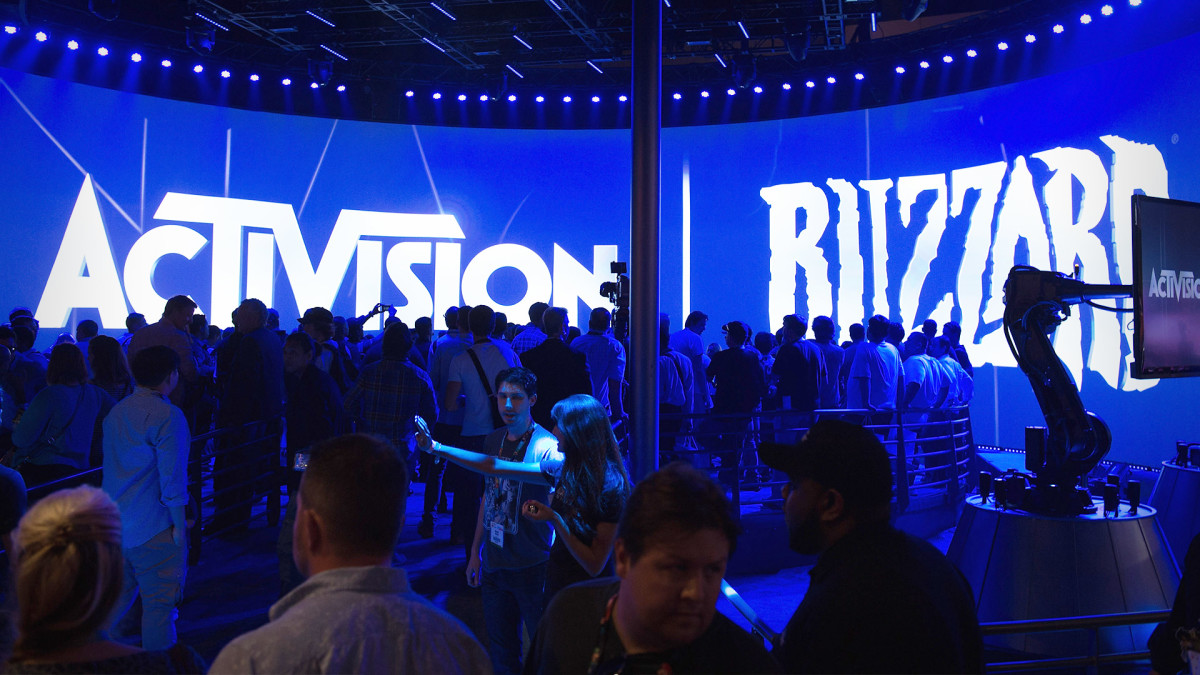It could make Microsoft a bigger player than ever, but will it go through?
COLETTE BENNETT
When it comes to supremacy in the video game industry, anyone familiar with it knows that it's an intense, endless battle, fought with tooth and nail.
While many companies have tried to enter the ring, only a few have emerged from it victorious: Tencent, Nintendo, Sony (SNE) - Get Sony Corp. Report, and Microsoft (MSFT) - Get Microsoft Corporation Report (sorry, Sega).
While the game industry is a massive revenue tornado in the U.S. today, valued at $173.7 billion as of 2020, it blossomed in Japan long before it hit our shores, and Nintendo led the charge first, launching its first game "EVR Race" in 1975.
By the time Microsoft decided it wanted in by 2000, Sony and Nintendo had long dominated the Japanese market and were known as trusted publishers who made excellent games.
And while American audiences took to the Xbox well, Asian markets wanted nothing to do with it, leaving Microsoft with the frustrating problem of being unable to capture the interest--and the revenue-- of a major sector of the market.
Microsoft's recent announcement that it intends to acquire video game publisher Activision Blizzard (ATVI) - Get Activision Blizzard, Inc. Report is an elegant solution to that problem. By combining Activision Blizzard's assets with its own, Microsoft can boost its ranking without solving the Japan problem, making it the third biggest video game company alongside Tencent and Sony.
But there are some who oppose the deal.

Daniel Boczarski/WireImage via Getty Images
Who's Against the Activision Blizzard Acquisition?
On Thursday, four U.S. senators sent a letter to the Federal Trade Commission requesting that it take a closer look at the Microsoft/Activision deal, The New York Times reported.
In the letter, Bernie Sanders, Elizabeth Warren, Cory Booker, and Sheldon Whitehouse implore FTC Chairwoman Lina Khan to consider how the merger could gloss over the importance of numerous sexual harassment claims that have been directed at Activision Blizzard over the last year.
It also points a finger at Activision Blizzard CEO Bobby Kotick, whose resignation has been called for by everyone from investors to current Activision Blizzard employees, leading strikes and efforts to unionize.
“This lack of accountability, despite shareholders, employees, and the public calling for Kotick to be held responsible for the culture he created, would be an unacceptable result of the proposed Microsoft acquisition,” the letter reads. "If the FTC determines that the deal could worsen the negotiating position between workers and the companies, then the agency should oppose it."
Two shareholders have also filed lawsuits in regards to the upcoming acquisition, claiming that the board is seeking to “procure for themselves and senior management [...] significant and immediate benefits" and calling the future sale "unfair for a number of reasons."
The billion dollar deal is currently under review with the FTC, as all mergers above a certain scale must be submitted for government antitrust review. In the meantime, the Securities and Exchange Commissions' investigation into Activision Blizzard is ongoing.
The game publisher did get one reprieve this week, however: An $18 million settlement for female employees of the company that alleged they experienced sexual harassment and pregnancy-related discrimination.
However, the fine print is worth a read (and a think). It states that by filing a claim, defendants agree to "remove from the personnel files of each Eligible Claimant any references to the Eligible Claimant’s allegations of sexual harassment, pregnancy discrimination, or related retaliation or determined by the EEOC to be related to such allegations."
In other words, once you agree to getting a relief payout, it's like your harassment never happened in the first place.
No comments:
Post a Comment